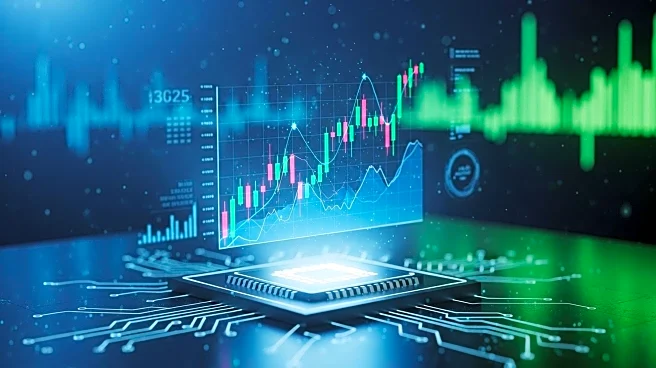What's Happening?
Since the release of Chat GPT in 2022, the value of the U.S. stock market has increased by $21 trillion, driven largely by enthusiasm for artificial intelligence. Ten major firms, including Amazon, Broadcom, Meta, and Nvidia, account for 55% of this rise. The IT investment boom has been a significant contributor to America's GDP growth, with a third of the West's venture capital dollars directed towards AI firms. This surge in AI-related investments has raised questions about the sustainability of such growth and the potential risks involved.
Why It's Important?
The rapid increase in stock market value due to AI investments highlights the transformative impact of technology on the economy. While this growth presents opportunities for innovation and economic expansion, it also poses risks of market volatility and overvaluation. Companies heavily invested in AI could face significant losses if the market corrects itself. Additionally, the concentration of investment in a few firms may lead to economic imbalances, affecting broader market stability and investor confidence.
What's Next?
Stakeholders, including investors and policymakers, may need to consider strategies to mitigate potential risks associated with the AI-driven stock market surge. This could involve diversifying investments and implementing regulatory measures to ensure market stability. Monitoring the performance of AI firms and their impact on the economy will be crucial in anticipating future developments and addressing any emerging challenges.
Beyond the Headlines
The AI investment boom may also influence cultural and ethical considerations, such as the role of technology in society and the implications of AI on employment and privacy. As AI continues to evolve, discussions around its ethical use and regulation are likely to become more prominent, shaping public policy and societal norms.








